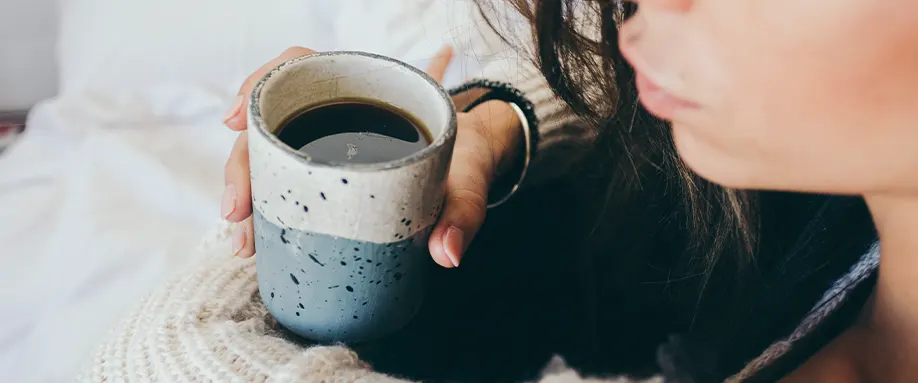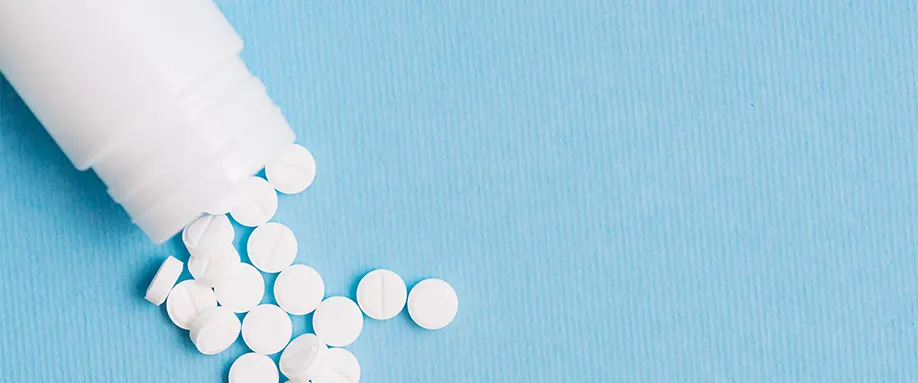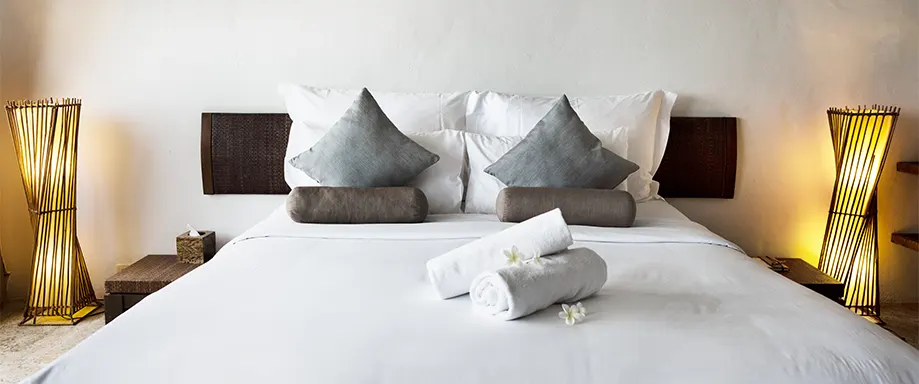What is the principle behind a coffee nap?
Let's start with some semi-basic human biology and chemistry.
When you feel tired, there's this organic compound found in our bodies called adenosine. Adenosine is one of the compounds that promote sleep. Essentially, when you become sleepy, adenosine levels in our bodies increase, making us feel groggy and sleepy. As we begin the fall asleep, adenosine levels begin to drop. The more we sleep – the lower they get.
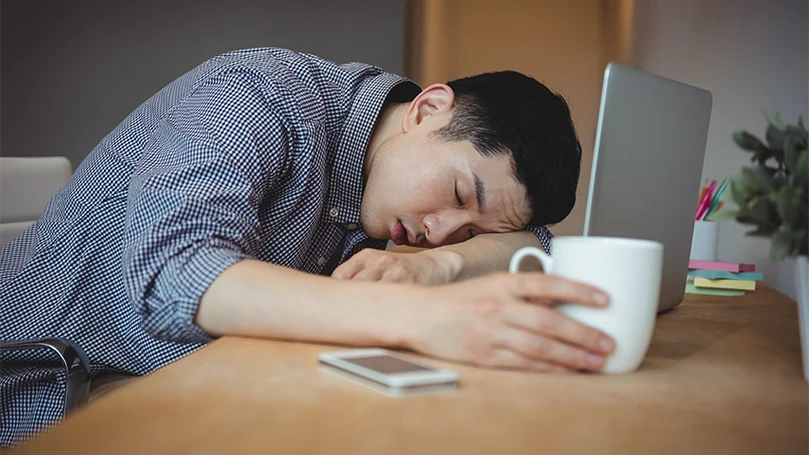
But, why is this important? Well, there's only so much room for various chemicals to interact with our brain receptors, and one of those chemicals is caffeine.
Caffeine does the exact opposite of adenosine, meaning they will fight with each other for a dance with our brain cell receptors. In other words, when you feel tired and you drink a cup of coffee, caffeine from coffee will have to battle with adenosine to keep you awake.
That brings us to the main principle behind a coffee nap – avoiding the fight.
Caffeine overtaking the adenosine
The main idea is that you down your cup of black coffee as fast as you can, and then go straight to bed, for a quick, 20-minute nap. Why? Well, it takes about 20 minutes for the caffeine to bridge the blood-brain barrier and begin binding with our brain receptors. So, the basic idea behind a caffeine nap is that you lower the adenosine levels by sleeping (or being in a half-asleep state), eliminating the competition for caffeine.
That way, caffeine's the one binding with your brain cell receptors, not adenosine, getting you your much-needed energy boost. Supercharged nap at its finest, isn't it?
Why are coffee naps good for you?
Now that we know how these ultimate power naps work, let's learn more about the benefits they bring.
Improved concentration
Drinking coffee generally makes it easier for us to concentrate on the task at hand, and so does sleeping. When we put the two together – we get the best of both worlds. You get a nice little power-up from a short nap, and once the caffeine kicks in – you'll become as sharp as ever.
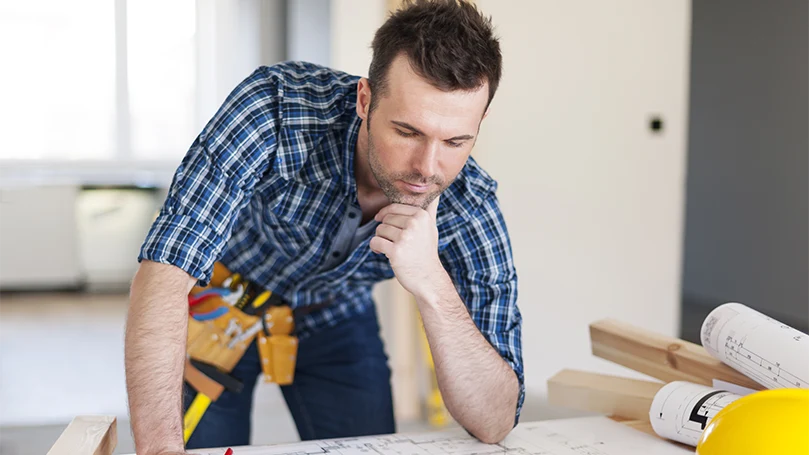
Boosted memory
Students have been consuming caffeine while studying for their tests for as long as anyone can remember. There have been countless studies linking caffeine intake with improved memory, and when you manage to trick your brain into making the most out of caffeine – you essentially become super smart. All jokes aside, boosted memory is one of the most significant perks of coffee naps.
More energy
Finally, you'll wake up with your energy levels through the roof. As both the nap and coffee affect your energy levels, it'll be quite hard to wake up from a perfect coffee nap experiencing sleep inertia. Trust us, one coffee-powered afternoon nap, and you'll be as energized as if you've slept a full eight hours of proper sleep.

Better focus
If you're ever in need of some extra focus – a caffeine-induced short daytime nap is there for you. One cup of coffee and 20 minutes of sleep later, and you'll be laser-focused. Doing this will help you get through some tough marathon studying and working sessions, just make sure you do it right.
How to take a coffee nap correctly?
Now that you've learned about the benefits of coffee naps, you might be tempted to go and try them right away. However, we suggest you pause for a bit and allow us to teach you how to make the most of it. After all, caffeine naps require a bit of finesse, otherwise, you'll just end up with a bad nap.

Avoid coffee naps at least 6 hours before the bedtime
First of all, limiting coffee naps to at least six hours before you go to bed is paramount. Seriously, avoid it at all costs. If you don't, you'll have a hard time falling asleep due to all the lingering caffeine effects. And, even if you do manage to fall asleep, you probably won't get to experience deep sleep, and you'll feel lethargic all day tomorrow.
Drink a coffee as fast as you can
The first order of business is to drink your coffee as fast as you can. If you can, drink an espresso or a ristretto – something you can down in one sip. That way, you'll be able to perfectly time your nap, just before the caffeine kicks in. Also, avoid sugar, cream, and all that jazz. Drink it black and bitter. Also, avoid energy drinks. Even though they're rich with caffeine – they're also pumped with sugar, which will offset the benefits of a coffee nap.
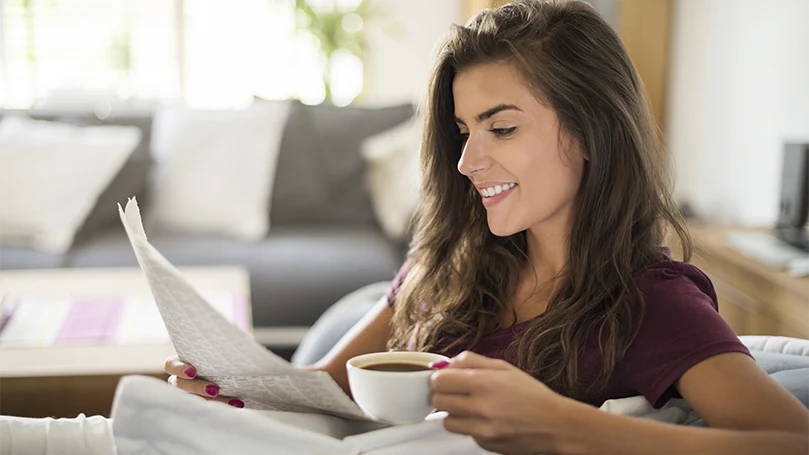
Hit the bed as soon as you drink it
You don't have a huge window to hit the snooze, so lie down as soon as you drink your coffee. If possible, drink your coffee straight from bed, so you can just shut your eyes and doze off. That will give you more time to rest, free up some receptors, and allow the caffeine to do its thing.
Don’t give up if you can’t fall asleep
Sometimes, it can be quite challenging to doze off, but don't give up. Take your time and try to relax. Even if you manage to get just five minutes of light sleep, you'll improve your odds of waking up laser-focused and motivated. So, just keep at it.

Sleep no longer than 20 minutes
Whatever you do – don't sleep for more than 20 minutes. Set your alarm and keep your prophylactic naps limited to 20 minutes, and you should be good. Combining caffeine and sleep doesn't really work well. If the only goal was to sleep – you wouldn't need coffee in the first place.
If you cannot fall asleep, try to calm down and close your eyes
Just calling yourself down and focusing on your breathing will bring the adenosine levels down, so even if you can't drift off to the dreamland – don't get up. Calm down, close your eyes, breathe slowly, and wait for the caffeine to do its magic. It shouldn't take more than half an hour for you to feel the buzz.
When is the right time to take a coffee nap?
As long as there's bright light outside – you can take a coffee nap. All jokes aside, as we said earlier, just make sure to keep it at least six hours away from bedtime and you should be good.
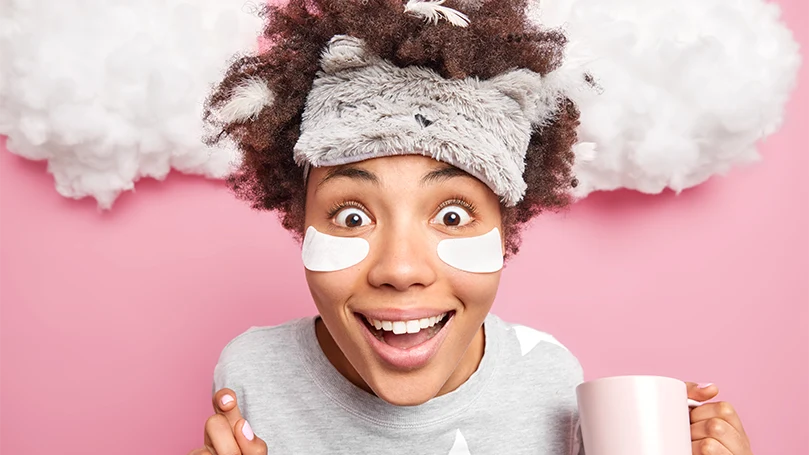
As far as the actual time is concerned – there's no perfect nap period. Do it if you feel the tiredness overtaking you, or if you feel like you could use a break to boost your focus and concentration. Whether that's right after breakfast or at 2 pm – doesn't really matter. You'll experience the same effects either way.

